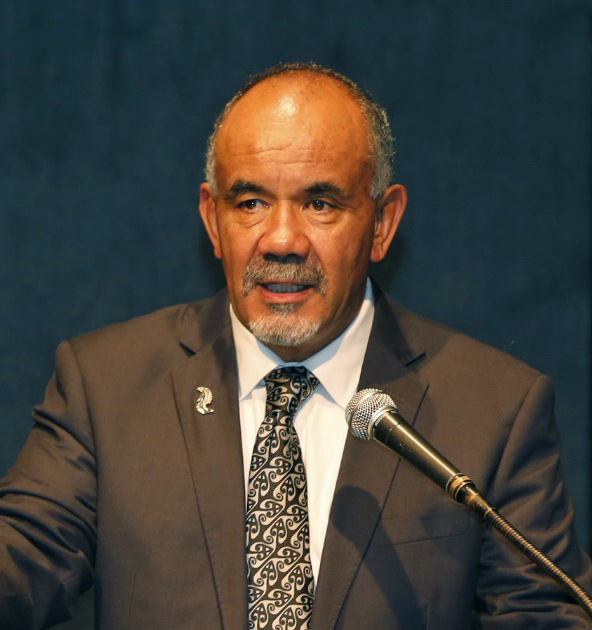New Zealand Minister for Maori Development Te Ururoa Flavell came to Korea last week to raise the profile of Maori businesses and promote their time-honored traditions.
On his first visit, Flavell led a trade delegation of nine Maori firms covering food and beverage, seafood, horticulture, agriculture, forestry and tourism.
At the breakfast forum hosted by the New Zealand Chamber of Commerce, known as “The Kiwi Chamber” on Tuesday, he addressed more than 50 local business community leaders on the sizeable role of Maori enterprises in the New Zealand economy, constituting 5.6 percent of its gross domestic product.

Highlighting the Korea-New Zealand free trade agreement that entered into force on Dec. 20, the minister spoke about extending the links between Korean and New Zealand-Aotearoa communities. Aotearoa is a Maori term for the country of New Zealand, meaning “the land of the long white cloud.”
In stressing the importance of relationships, he said, “What’s the most important thing in the world? It’s people, people, people.”
Tony Garret, the chamber chair and associate professor at the Korea University Business School, said: “The minister illustrated very well the importance of Maori enterprises to our economy through Maori innovation, leadership and business practices represented in the trade mission.”
According to the chamber, aside from the aforementioned sectors, which are the mainstays of their businesses, Maori companies have ventured into energy, biotech, education, information communications technology, film and creative industries. They have traditionally made use of their properties and natural surroundings for real estate, tourism and food production.
In particular, the food and beverage and seafood industries are the backbone of Maori culture and economy. The native inhabitants of the island nation on the southwestern Pacific Ocean export kiwifruit, apples, pears, wine and fresh and processed vegetables.
Kiwifruit and wine are the largest export sources, each exceeding $700 million a year. Maoris own half of the country’s fishing quota and the industry has a globally recognized reputation for its high-quality products, high safety standards and fisheries management programs.

In an interview with The Korea Herald, New Zealand Ambassador Clare Fearnley said her country’s founding document -- the Treaty of Waitangi in 1840 -- was based on a “recognized partnership” between the two peoples -- the indigenous Maori and European settlers. The Maoris, who came from China, Taiwan and Polynesian islands at some point between 1250 and 1300, signed the treaty with the British Crown.
According to Fearnley, the treaty was distinct in that there was a “mature acknowledgement” of their property, culture and position in society, which was unique among colonies. Maori culture is acknowledged in New Zealand as “tangata whenua,” a native term meaning “people of the land.”
Maori cabinet ministers took a full part in politics following the treaty, and their modern culture developed based on trade in and around the country and adoption of Western technologies and weapons, she explained.
To redress colonialism’s injustices, Wellington established the Waitangi Tribunal, which has reviewed the impacts on indigenous lives and restored relations by returning assets, land and fishing and forestry rights to original tribal groups.
By Joel Lee (joel@heraldcorp.com)
-
Articles by Korea Herald




![[Herald Interview] 'Amid aging population, Korea to invite more young professionals from overseas'](http://res.heraldm.com/phpwas/restmb_idxmake.php?idx=644&simg=/content/image/2024/04/24/20240424050844_0.jpg&u=20240424200058)















